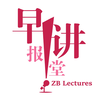《早报讲堂》:认识东南亚 ZB Lectures: Understanding Southeast Asia
讲堂将透过Zoom Webinar线上进行,免费但须预先报名 |
第六讲:冠病时代站在十字路口的东南亚
冠病“风暴”对本区域国家的影响有多深远?迷雾中航行的东南亚各国又是否同一艘船上? 各国目前为抑制病毒扩散,采取了不同的应对策略,“早报讲堂:认识东南亚”最后一讲主讲者梅农博士近期在深入研究不同东南亚国家低收入人民在冠病中受的影响后,一再主张逐步开放边境,拉平疫情“苦难曲线”,以减缓冠病对社会底层的经济冲击。
主讲者也将阐述冠病疫情如何催化中美关系性质的改变,带大家看中美战略竞争如何影响东南亚。
日期:11月28日 星期六
时间:下午4时至5时15分
活动语言:英语 *线上将提供中英同声传译
主讲嘉宾:贾扬特·梅农 博士
|尤索夫伊萨东南亚研究院客座高级研究员
|亚洲开发银行前首席经济师
更多详情,请浏览报道: “早报讲堂:认识东南亚”系列最后一讲 了解疫情下东南亚底层苦难。
Lecture Six: Responding to Covid-19: Southeast Asia at a Crossroads
To contain the spread of the Covid-19 virus, different pathways have been adopted by the Southeast Asian countries. This last lecture of the series will look at how some of the poorer nations are impacted by current curtailment measures, and explore the idea of whether there is an urgent need to flatten the “misery curve” now by removing travel restrictions. Can the response be improved if the region acts as a whole?
The lecture also seeks to reimagine Southeast Asia in a post-pandemic world, against the backdrop of a strategic rivalry between the United States and China causing tension in the region.
Language: English *Simultaneous interpretation (English to Mandarin) is available
Speaker: Dr Jayant Menon
|Visiting Senior Fellow at ISEAS-Yusof Ishak Institute
|Former Lead Economist at the Asian Development Bank
《早报讲堂》:认识东南亚
ZB Lectures: Understanding Southeast Asia
【系列活动简介】
东南亚是许多人既熟悉又陌生的名词,除了美食和旅游,你对自己身处的区域了解有多深?
近年来,东南亚在国际政治和经济舞台上迅速崛起,区域的发展牵动着你我的命运。
《联合早报》推出“早报讲堂:认识东南亚”系列,通过六堂讲座邀你重新踏入课堂,以全新视角认识东南亚的过去和未来。活动语言依讲者而定,现场提供中英通译。
How well do we really know Southeast Asia?
In recent years, Southeast Asia has risen rapidly in the political and economic arena. Singapore’s fate is closely tied to the region.
Against this global backdrop, Lianhe Zaobao is launching six specially curated lectures. Come join us and learn more about Southeast Asia from a new perspective.
活动地点:终身学习学院二楼讲堂 Lifelong Learning Institute, Level 2 Lecture Theatre
地址:11 Eunos Rd 8, Singapore 408601
费用:免费入场,须预先报名 Free admission, entrance based on registration
**成功报名者将获得电邮通知 Successful registration will be notified via email**
第四讲: 权力之争?——泰国新王权下的政治体系
Wrestling for Control? -- Thailand's political regime under the new reign
民选政府、军方与新王权,泰国政治体制中的三角习题,该如何理解?
今年3月,泰国举行八年来首个全国选举,原军政府首相巴育被亲军人的公民力量党推选,转型为新民选首相。坊间普遍认为,巴育政权有了军方和民选政府的加持,已殿下稳固的基础。
但大选后,民选政府和军方之间的关系悄悄生变。与此同时,新任的王室也正紧锣密鼓地扩大皇家卫队、吸纳军方的资源,势力逐渐壮大。
“早报讲堂:认识东南亚”第四讲,泰国资深媒体人甘佳纳昆迪(Supalak Ganjanakhundee)将解析泰国政治局势的最新动向,带你了解当地政治体制中,三股势力之间的互动与权利较量。
The elected government, military and monarchy are the three key players in Thailand’s political regime. How do these forces interact with and balance amongst themselves in the ever-changing political landscape?
In the first post-coup elections held in March this year, junta chief Prayut Chan-o-cha came to power. The relationship between the military and the government has since seen some subtle changes. In the meantime, the new King has been expanding his royal guard over the past year, recruiting more resources from the military to be under his direct command.
In the fourth of six lectures, former Chief Editor of Thai media daily The Nation Supalak Ganjanakhundee explains the structure of Thailand’s current political regime, and sheds light on ties between the elected government and the military, against the backdrop of the new monarchy reign.
日期:11月23日 星期六
时间:下午2时30分至4时
活动语言:英语 *现场将提供英中同声传译
Date / Time: 23 November (Sat) / 2.30pm to 4pm
Language: English *Simultaneous interpretation (English to Mandarin) is available
主讲嘉宾:素帕拉克·甘佳纳昆迪 Supalak Ganjanakhundee
尤索夫伊萨东南亚研究院客座研究员
泰国资深媒体人
第三讲: 冷战余音未了?——越南和柬埔寨的民族主义斗争
Echoes of the Cold War: Nationalist Struggles in Vietnam and Cambodia
越南和柬埔寨在第二次世界大战之后,饱经多年的暴力与战争。他们因此痛失了数十年的光阴,经济发展落后于其他东南亚国家。两个国家也曾处于大国所发动的代理人战争的中心。
这段令人悲痛的历史,对于亚细安和东南亚有着深远的影响。我们可从中窥视二战后民族主义与共产主义之间的冲突,了解越柬两国如何应对外部势力的干预,并重新检视上世纪90年代盛行的骨牌理论。
“早报讲堂:认识东南亚”第三讲,达尔吉星将探讨冷战后,越南、柬埔寨及邻国之间不断变化的关系。随着东南亚再次成为大国博弈的场域,两国也正致力于应对,尽管采取的方式略有不同。
Vietnam and Cambodia had a tragic history of violence and war for many years after World War Two. Because of this, they lost decades in economic development and fell behind other countries of Southeast Asia. The two countries were also the centres of proxy wars between great powers which had had major implications for ASEAN and Southeast Asia.
The two countries therefore provide some useful lessons in the post-World War Two conflicts between nationalism and communism, managing external power interventions and examining the domino theory of those days.
In the third of six lectures, Mr Daljit Singh discusses the changing dynamics between Vietnam, Cambodia and their immediate neighbours post-Cold War. The great power game in Southeast Asia is on again and both countries are trying to cope with it, albeit in slightly different ways.
日期:10月3日(星期四)
时间:晚上7时30分至9时
活动语言:英语 *现场将提供英中同声传译
Date / Time: 3 October (Thus) 730pm-9pm
Language: English *Simultaneous interpretation (English to Mandarin) is available
主讲嘉宾:达尔吉星 Daljit Singh
尤索夫伊萨东南亚研究院高级研究员
第二讲:寻找现代性?——马来群岛的身份认同建构
然而,随着保守主义崛起,原本扎根于本土文化的这份认同感,正面临被削弱的危机,甚至影响社会和谐。
“早报讲堂:认识东南亚”第二讲,诺沙里尔博士将分享他对印度尼西亚和马来西亚现代化进程的观察,带你了解本区域马来与回教身份认同的建构。
日期:9月2日(星期一) 时间:晚上7时30分—9时
活动语言:英语 *现场提供英中同声传译
Date / time: 2 September (Mon) 7.30pm-9pm
Language: English *Simultaneous interpretation (English to Mandarin) is available
主讲嘉宾:
诺沙里尔博士 Dr Norshahril Saat
尤索夫伊萨东南亚研究院研究员
第一讲:多元社会如何打造“国族”?——东南亚国家的大习题
Lecture One: Still in the Making? Southeast Asia: From Plural Societies to Nation States
身处东南亚的你是否知道,这个耳熟能详的地理名词,其实是二战时产生的?
在那之前,这片区域曾是人们口中的“南洋”或是“东印度”,而除泰国以外,所有东南亚国家都有过一段殖民史。
殖民者当年遗留的多元族群社会,以及他们采取的分而治之手段,使得东南亚各国在独立后面临着如何建立国族认同的“大习题”。
由《联合早报》打造的“早报讲堂:认识东南亚”系列讲座,每一讲请来不同学者从多元角度介绍这片土地。第一讲请来廖建裕教授,解析东南亚民族国家的形成和发展。
We often refer to the region as “Southeast Asia”, but did you know that this frequently used term only came about during World War II?
Before that, the region was known commonly as “Nanyang” or “East India”, and the countries that make up Southeast Asia all had a colonial past, with the exception of Thailand.
In the first of a six-series lecture, Professor Suryadinata explores the idea of plural societies in Southeast Asia. He will be sharing on how the colonial masters used a divide-and-conquer approach to rule, and how this has in turn affected each Southeast Asian nation in their search for a common national identity post-independence.
日期:8月10日(星期六) 时间:下午2时30分—4时
活动语言:华语 *现场提供中英通译
Date / Time: 10 August (Sat) 2.30pm-4pm
Language: Chinese *simultaneous interpretation (Chinese to English) is available
主讲嘉宾:
廖建裕博士 Prof Leo Suryadinata
尤索夫伊萨东南亚研究院资深访问研究员
南洋理工大学拉惹勒南国际研究员兼任教授
